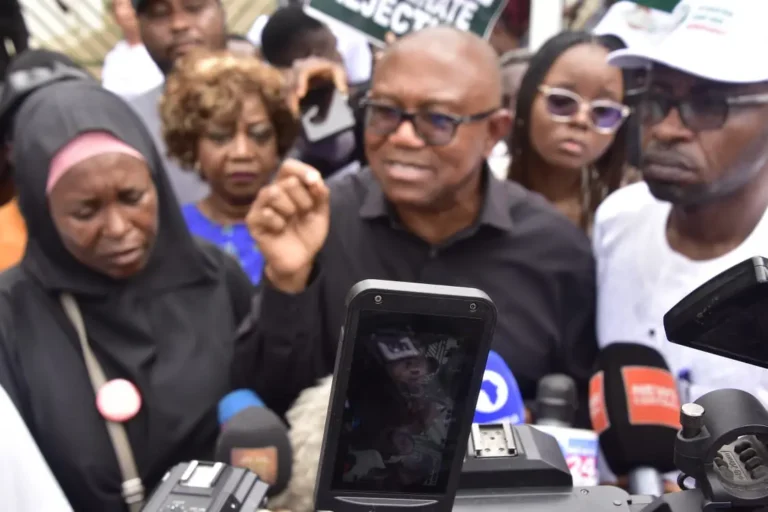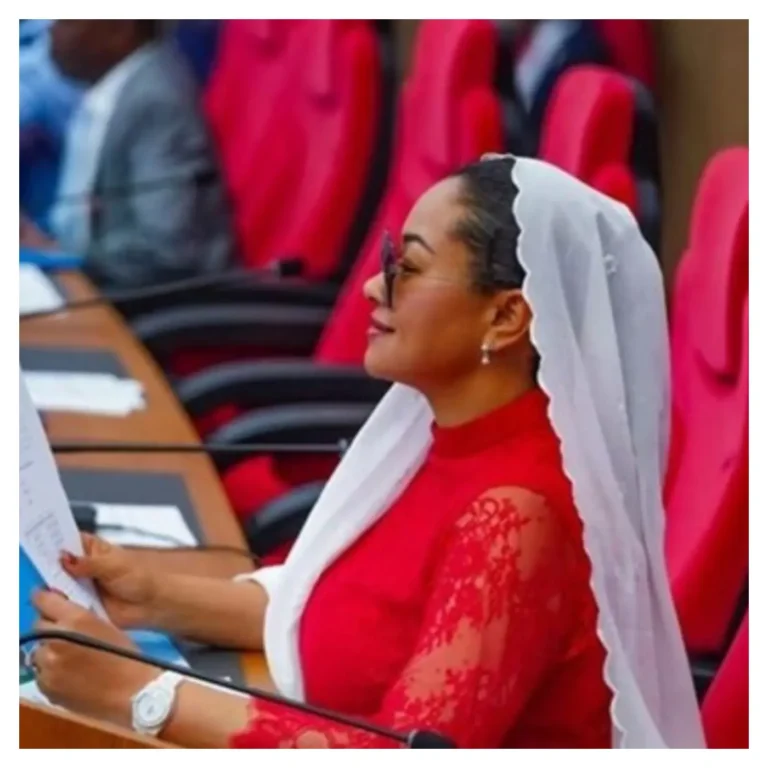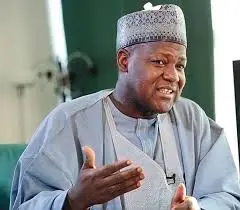
“By the end of last year, 14,000 schools were closed in the Sahel due to conflict. We risk losing an entire generation,” the Deputy UN chief warned.
She added, “Cyberspace today is a battlespace. Once it was the radio that carried messages of hate and incited genocide. Today, it is social media, amplifying division at terrifying speed,” she said.
On artificial intelligence, Mohammed cautioned that while AI can help predict food insecurity and detect landmines, it also “raises profound risks for human rights, dignity, and the rule of law. According to her, algorithms are already being used to make life-or-death decisions — a responsibility that must remain human.
She equally underscored the role of climate change in fueling insecurity, adding that the shrinking waters of Lake Chad alone have displaced over three million people.
“The evidence is overwhelming, and the consequences are undeniable,” she said, adding that African leaders need to act collectively. She stated: “Security cannot be pursued in isolation, it is inseparable from development, human rights, and climate resilience. Above all, Africa will not be a bystander. Africa will take ownership of its security, harness technology for peace, and protect its people. Nearly 1.5 billion Africans are counting on us to rise to this moment,” she said.
The Economic Community of West African States (ECOWAS) says plans are underway by the regional bloc to activate a 260,000-member counter-terrorism brigade.
President of ECOWAS, Omar Alieu Touray, stated this at the 2025 African Chiefs of Defence Staff summit in Abuja. The summit’s theme was, “Combating contemporary threats to regional peace and security in Africa: the role of strategic Defence collaboration.”
Touray, who was represented by ECOWAS commissioner for political affairs, peace and security, Amb. Abdel-Fatau Musah, said this was part of the efforts to reduce the scourge of terrorism and other forms of insecurity in the sub-region. He said besides the counter-terrorism effort, the bloc is also pursuing the operationalization of its integrated maritime security, adding that no region in Africa is spared the scourge of terrorism, civil and predatory wars, organized crime, and underdevelopment.
Tinubu reaffirmed Nigeria’s long-standing commitment to regional peace and cooperation through peacekeeping missions, counterterrorism, and humanitarian efforts. He urged African countries to invest in cyber defense, artificial intelligence, and indigenous military innovation, adding that Africa must move beyond merely consuming technology to becoming creators and owners of security tools.
“Africa cannot remain merely a consumer of technology; we must be creators, innovators, and owners of the tools that secure our tomorrow,” he declared.
He also called for partnerships with the private sector to drive investment in defense innovation and capacity building. Paying tribute to fallen soldiers, Tinubu said their legacies must be honored through the institutions, values, and partnerships that secured Africa’s future.
Over 1,000 insurgent groups operating in Africa, says Buhari’s ex-CoS
Earlier, Prof. Ibrahim Gambari, a former Chief of Staff to late President Muhammadu Buhari, revealed that over 1,000 insurgent groups are currently operating within the African continent, the majority of whom he said were deadly. He, therefore, called on the African leaders to strengthen Defence industries and own its technologies in order to address the threats, saying it was high time for the African nations to design and build their own security architecture that guarantees human security.
Gambari, also a former Minister of external affairs and former Nigeria’s permanent representative to the United Nations, called on African nations to first secure their various nations before securing the region and continent at large.
Mali, Burkina Faso, and others absent from summit
Checks by our correspondent, who covered the summit, showed that out of the 54 African countries that were invited to participate, 36 were represented. Notably, Niger Republic representatives honored the invitation, but Mali and Burkina Faso were conspicuously absent. Their absence might not be unconnected with the political tension between the countries and the regional bloc, ECOWAS.
Speaking, a former Prime Minister of the Republic of Guinea, Lansana Kouyate, urged African leaders to pursue collective security, stressing that peace remains the foundation of sustainable development on the continent. Kouyaté said the gathering of defence chiefs from all 54 African countries signaled a historic step in confronting terrorism and insecurity.
“For the first time, the Chiefs of Defence of the whole continent are together. This shows how important the subject is — without peace, there is no development,” he said.
The former Prime Minister noted that Africa is too often perceived as a single country rather than a continent of diverse nations, a legacy of both history and colonization. He said he would further present ideas on innovative financing for security through public-private partnerships during the forum’s sessions.
DAILY TRUST.




